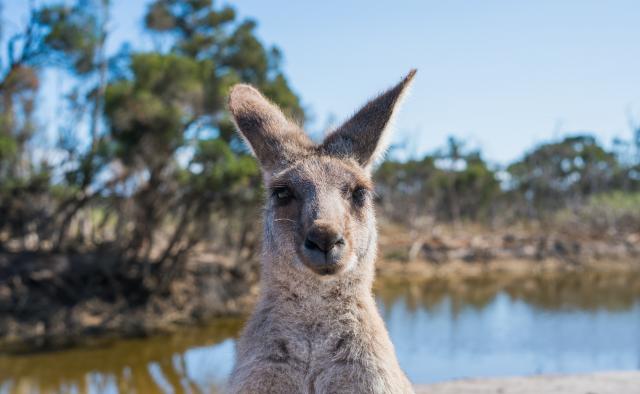Elsie Lange
Volunteer wildlife rescuers in the Macedon Ranges say they are seeing an increase in the number of reported kangaroo shootings, where the animals are shot and left to suffer.
Wildlife Victoria volunteers Sue Anderson and Debbie Gwyther-Jones attended two separate incidents at Bolithos Road in Riddells Creek in July and September – the gruesome nature of these rescues sticks with them.
“The female kangaroo I attended was the third shot kangaroo I’d dealt with in eight days,” Ms Gwyther-Jones said.
“It’s incredibly sad, you keep thinking about how long ago the animal was shot, and how long she had already been suffering with that wound.
“It always makes me think about the ones that we don’t find.”
The first Bolithos Road kangaroo was called in to the rescuers in July. It was a large male, with what the rescuers said were two bullet wounds in the neck. He was hiding in a residential yard.
The second, about two to three weeks ago, was the mother kangaroo, with a joey in her pouch, who had an infected, maggot-infested suspected bullet wound in her chest. After they tranquilised her for treatment, the joey got away.
“We searched for two to three days afterwards. We assumed it would have been eaten by a fox or possibly died because it was pouch dependent,” Ms Gwyther-Jones said.
“That was a really bitter pill to swallow on top of such an unnecessary rescue.”
Ms Anderson described having to deal with kangaroos that have been shot on top of their normal workload as volunteers as an “added blow”.
“We don’t get paid, we’re out there doing normal rescues every day and those rescues are hard enough as it is,” she said.
“But to come and see these animals with bits of them shot off, full of infection … It is cruel, and it’s frustrating for us.”
With her 22 years of experience as a rescuer, Ms Anderson said she believed the shootings on Bolithos Road to have been by recreational shooters.
“Professional shooters with a culling permit are not supposed to shoot them in the chest, they’re supposed to shoot them with a brain shot,” she said.
“It’s leaving a rotten job for us as volunteers.”
If you see injured wildlife, contact Wildlife Victoria on 8400 7300.







